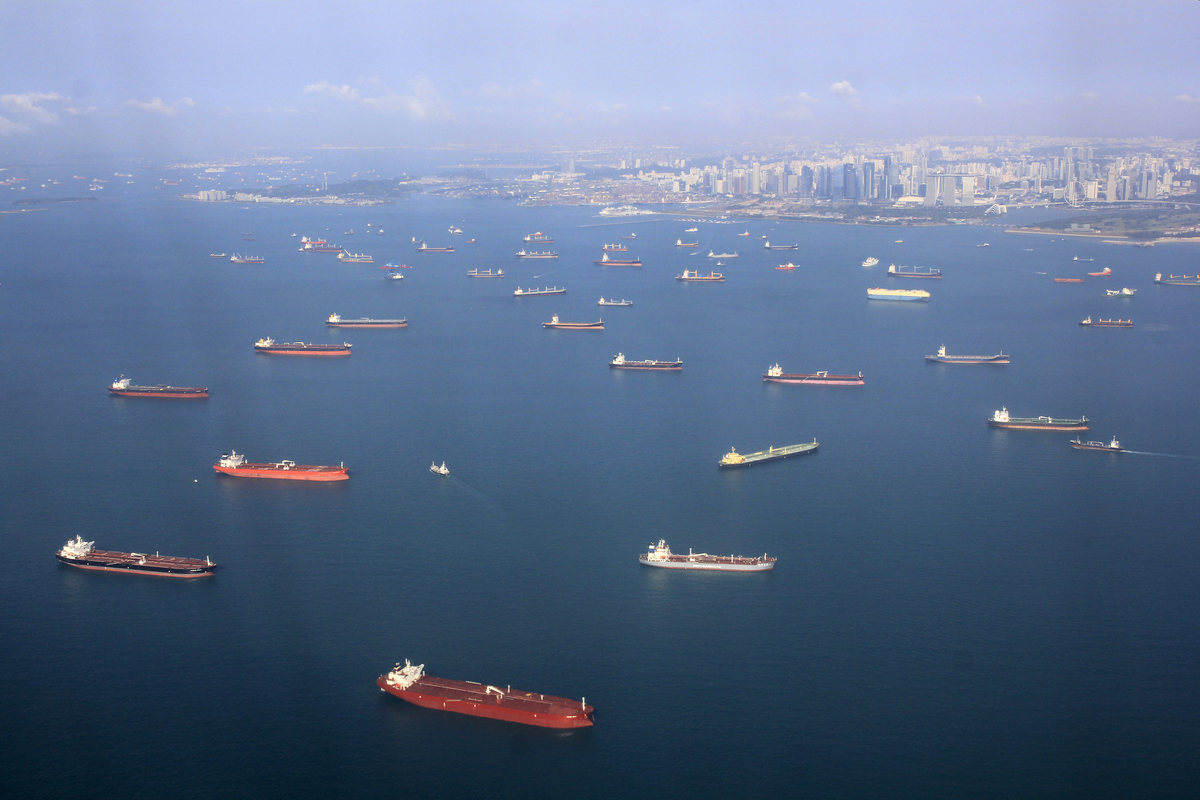Major maritime companies collaborate to decarbonise shipping via book and claim approach - GMF
Nine major maritime companies have jointly expressed interest in implementing a book and claim chain of custody systems to accelerate “the early phases of shipping’s decarbonization,” the Global Maritime Forum (GMF) stated.
 PHOTO: Dense rows of vessels on the waters of Singapore. Getty Images
PHOTO: Dense rows of vessels on the waters of Singapore. Getty Images
GMF argues that the maritime sector faces the "chicken-and-the-egg problem when it comes to zero-emission fuel adoption." This means that shipowners are reluctant to invest in zero-emission vessels until there is widespread availability of alternative fuels. This results in limiting the usage of alternative fuels.
The book and claim model aims to overcome these barriers and promote zero-emission in shipping. "By decoupling the physical use of zero-emission fuel from its attributes such as greenhouse gas emissions (GHG) a book and chain of custody system can allow demand for low-emission shipping to scale up," GMF report argues.
Upon production of zero-emission fuel the attributes such as GHG are tracked separately from the physical fuel, GMF says. It asserts that the fuel could be further blended with conventional-oil-based marine fuels during bunker operation or onboard.
GMF further explains that in “a book and claim system, the environmental benefits of zero- and near-zero-emission fuels are tracked and transferred across the maritime value chain. One party can purchase, or “book”, a specific quantity of zero- or near-zero-emission fuel and then “claim” the environmental benefits of it even though the fuel is physically used by another shipper in a different location.”
The signatories of the joint statement have also appealed to the climate action projects including the Greenhouse Gas Protocol and the Science Based Targets initiative to recognise book and claim chain of custody systems as “credible emissions reductions.”
The companies have also urged the International Maritime Organization (IMO) to adopt a full life cycle or well-to-wake (WtW) approach to gauge marine fuels' true emissions when IMO drafts policy measures for decarbonisation at its 80th Marine Environment Protection Committee (MEPC) meeting this week.
The joint statement’s nine signatories include Aspen Shipping Decarbonization Initiative, DHL Global Forwarding, Hapag Lloyd, Kuehne + Nagel, NORDEN, Oldendorff Carriers, ONE, Torvald Klaveness, and Yara Clean Ammonia.
By Tuhin Roy
Please get in touch with comments or additional info to news@engine.online






